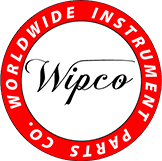What is Precision Machining?
Precision machining is a method of production that enables machinists to create detailed parts at incredibly tight tolerances. WIPCO has been producing precision-machined parts from some of the world’s most challenging materials, including super alloys, for two decades. Our expert machinists work closely with our customers to produce components crafted to the unique specifications of every project, no matter how complex. At our ISO 9001:2015/AS9100D-certified facilities, we are able to manufacture parts within tolerances of +/- 0.0002.
What is Precision Machining?
Precision machining describes the action of removing excess material from a large workpiece in order to shape it into a more precise part. This subtractive process enables machinists to adhere to extremely tight tolerances, even when working with very small components.
However, adherence to tight tolerances is not the only advantage of precision machining: It also offers a high degree of accuracy and repeatability when machining large quantities of the same component. This high level of accuracy is vital to numerous industries, as it ensures that minuscule parts will work seamlessly and interchangeably within larger machinery.
The tight tolerances of precision machining are made possible through the use of Computer-Aided Manufacturing (CAM) and Computer-Aided Design (CAD). Although many designs begin life as hand-drawn sketches, the incorporation of computer technology makes it possible for machinists to follow highly detailed blueprints when creating the final part. Designers create these blueprints as CAD files, which are converted to CAM files that can be read by Computer Numerical Control machine tools.
Precision machining is a subset of standard CNC machining. As the name suggests, precision machining offers tighter tolerances than standard CNC machining due to specialized tooling and additional process capabilities.
Precision machinists have an array of machining tools at their disposal. The ideal option will vary depending on the type of material being worked and the size of the final component. Machinists may work with any of the following:
- Drill presses
- Milling machines
- Lathes/turning centers
- Robotics
- Saws and grinders
Uses of Precision Machining
Precision machining is ideal when a design requires extremely tight tolerances that standard CNC machining cannot provide. Materials that precision machinists often work with, including:
- Aluminum
- Bronze
- Glass
- Graphite
- Plastics
- Steel
Although precision machining offers benefits for a vast range of applications, it is particularly advantageous for industries where the accuracy and precision of a part can mean life or death, such conditions found in aerospace or medical applications. Precision machining is often the production method of choice when manufacturing:
- Surgical instruments
- Aerospace components
- Solar and wind components
Although it can produce larger components, precision machining is also ideal in situations where many small parts must fit together tightly in order to function properly. This method of machining enables manufacturers to create incredibly small parts with extreme accuracy, ensuring that the components will function well when assembled together.
However, precision machining isn’t just used for the creation of new components. Many industries use this method of machining to repair tools and components that have been worn down with use. Precision machinists can sometimes recalibrate parts to bring machinery back to its optimal level of functionality.
Precision Machining From WIPCO
With its adherence to tight tolerances, high levels of accuracy, and ability to produce incredibly small components, precision machining offers immense benefits across a wide range of industries. At WIPCO, no project is too complex for our team of experienced machinists. We will work closely with you throughout the production process to ensure that your parts match your exact needs and specifications.
To work with us on your next precision machining project, contact us or request your quote today.
